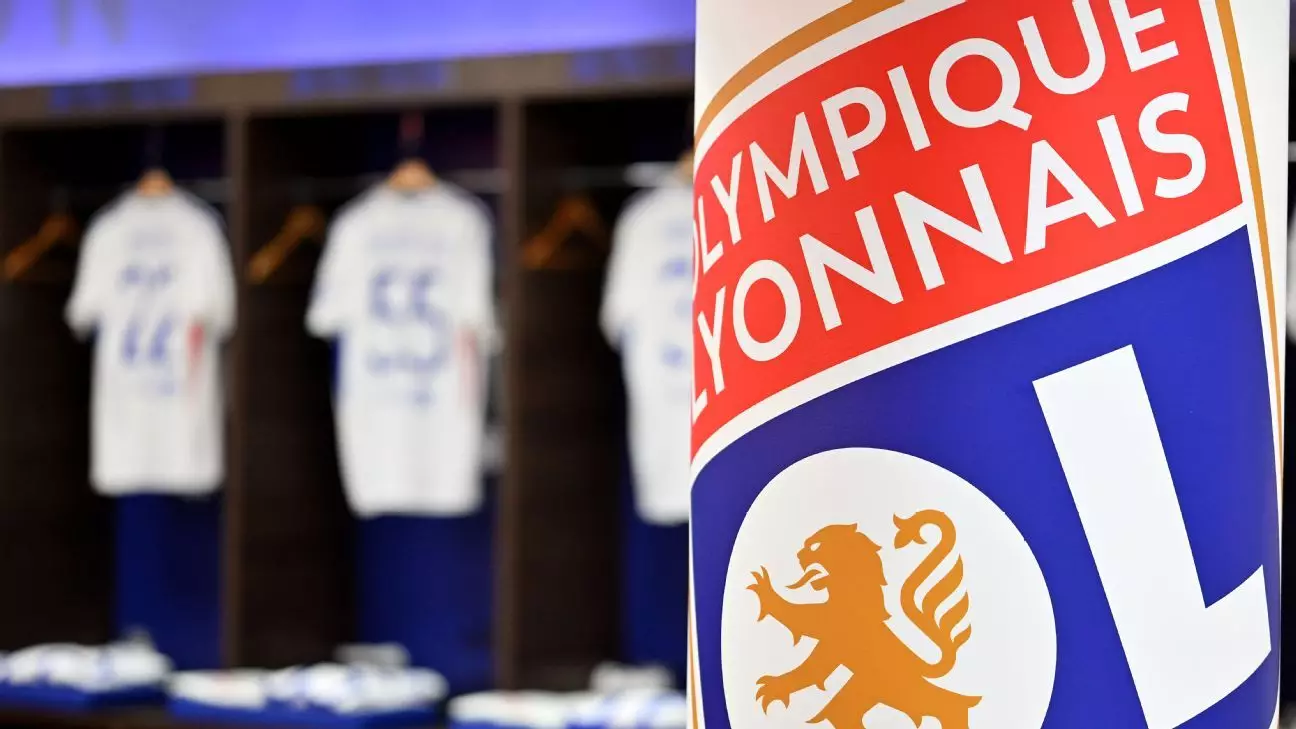Olympique Lyonnais, one of France’s most storied football clubs, is facing severe sanctions due to a series of financial missteps. Recently, the National Directorate of Management Control (DNCG) imposed a transfer ban on the club for the upcoming January window and provisionally relegated them from Ligue 1 after the current season. The penalties stemmed from a hearing where the club’s financial practices were scrutinized, leading to the revelation of staggering debts that have exceeded €505.1 million. Such figures not only paint a grim picture of the club’s operational health but also underscore broader issues within the management and ownership structure.
The club is owned by American businessman John Textor, who has faced challenges in stabilizing the financial situation since his takeover. As the head of a consortium with investments in multiple clubs, including Premier League’s Crystal Palace and Botafogo of Brazil, Textor’s challenges at Lyon highlight the difficulties of managing clubs across different leagues and accounting systems. This episode serves as a reminder that ownership does not guarantee success; mismanagement can lead to dire consequences, including relegation and the isolation of financial resources.
It’s crucial for club owners to understand the unique contexts and pressures that each football market presents. Under Textor, Lyon’s ambitions have not translated into financial success or competitive accolades. History reflects a club that dominated French football through seven consecutive league titles from 2002 to 2008 and made notable runs in the UEFA Champions League. The stark contrast between past glories and present predicaments calls into question the strategic direction taken by the current administration.
To avoid relegation, Lyon will need to present a sustainable financial plan, which must be approved by the DNCG. This includes adhering to strict budget restrictions on player salaries and finding avenues to cut costs adequately without significantly diminishing their competitive edge. The challenges ahead are formidable, as the club must balance financial prudence with the need to retain key talent and attract new players. Textor’s optimistic comments post-hearing emphasized a hopeful outlook, but the reality remains that actions will speak louder than words.
The upcoming public presentation of the financial documents may renew hope among fans and stakeholders, but given the lack of recent successes, skepticism abounds. Supporters, who have borne witness to the club’s downward spiral, will be anxious to see not only accountability but a feasible roadmap back to the upper echelons of French football.
Lyon’s predicament is a cautionary tale for other clubs operating in similarly complex financial landscapes. The enforcement of financial regulations by the DNCG is critical in ensuring that no club veers too far into the realm of unsafe financial practices. Sustainable management should become the priority for clubs, especially in a climate where financial miscalculations can lead to catastrophic results.
For Lyon, the upcoming months will serve as a litmus test for management strategies and fan patience. The need for transparent financial practices, clear communication, and a commitment to restoring past glories is evident. As the club navigates these turbulent waters, it may just be the catalyst needed for a broader shift in how football clubs approach fiscal responsibility moving forward.
